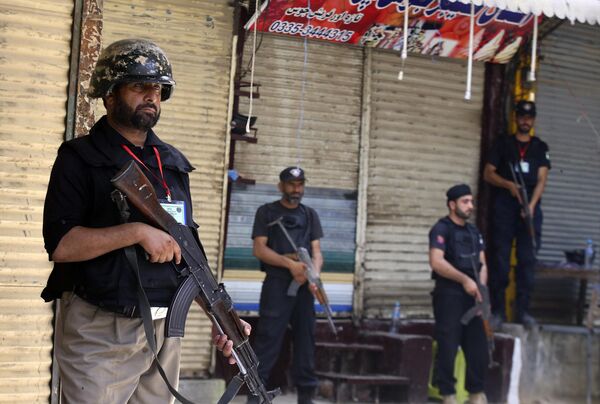
Should Pakistan Rethink Afghan Policy in Wake of Terror Rise?
The Afghan Taliban* had promised the world through the Doha Accord that their land would not be used for terrorist violence against any country. However, they have been unable to stop the threat of terrorism on both sides of their border with Pakistan. Despite the Afghan Taliban denying it, the head of global terror outfit al-Qaeda**, Al Zawahiri, was reportedly killed in a drone strike when the Afghan Taliban took over.
“There was a detailed briefing on the internal security situation. Operational preparations and training aspects of the army were also discussed at the conference. The sanctuaries and liberty of action available to the terrorists of the proscribed TTP and other groups of that ilk in a neighboring country and availability of the latest weapons to the terrorists were noted as major reasons impacting [the] security of Pakistan,” a statement issued by the ISPR said.
Afghan Taliban spokesperson Zabihaullah Mujahid referred to the Doha Agreement in an interview: “We have signed the Doha Agreement with America, but Pakistan is our brother and a neighbouring country, and we do care about this aspect. The Afghan Taliban would never want Afghanistan’s soil to be used against a neighbouring brother country.”
As long as the Afghan Taliban were fighting against the US coalition forces and the government established by them, organizations such as al-Qaeda, Jundullah**, Tehreek-e-Taliban Pakistan, and Central Asian militant movements such as the East Turkestan Islamic Movement**, Jamaat Ansarullah**, and Katiba Imam Bukhari** were fighting alongside them.
It seems difficult for the Afghan Taliban to pressure the Pakistani Taliban. TTP men used to shelter some of the Afghan Taliban commanders and fighters when they faced military operations and drone attacks. In protecting the Afghan Taliban and fighting alongside them against the US coalition forces and the Afghan government, they lost hundreds of their fighters during security operations carried out in Pakistan. It is difficult for the Taliban leaders therefore to take immediate action against the TTP or force them to leave Afghanistan.
Meanwhile, Pakistan, Afghanistan, Iran, China and Central Asian states all face the menace of Daesh. Threats for Afghanistan and its neighbours are on the rise due to a new form of terrorism with a global agenda.
